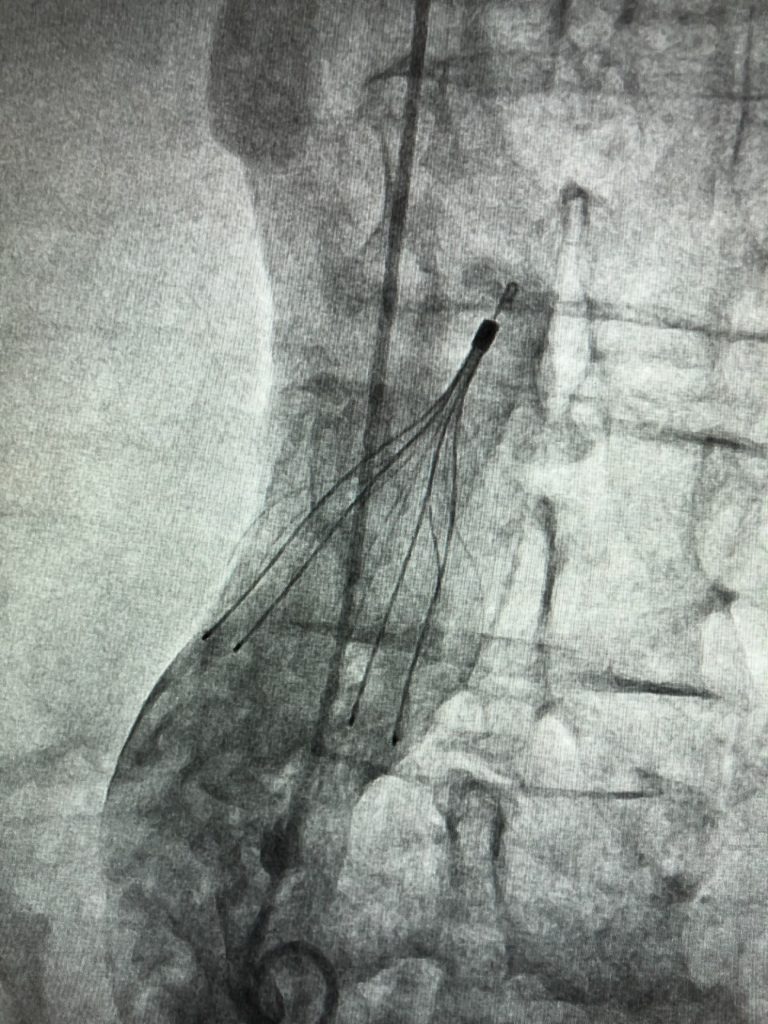IVC Filters
Inferior Vena Cava Filter
An inferior vena cava (IVC) filter is a vascular filter that is inserted through a catheter into the main vein in the abdomen which carries blood back to the heart from the lower half of the body. This vein in the abdomen is called the inferior vena cava. The IVC filter may be placed through a catheter in the femoral vein in the groin or through the internal jugular vein (neck). The filter prevents blood clots from breaking loose in leg veins and traveling to the lung, a condition known as a pulmonary embolism which often results in severe shortness of breath and, in severe cases, may be fatal.
Indications for IVC Filter
IVC filters are typically implanted in patients who have suffered a massive pulmonary embolism who likely would not survive a second pulmonary embolism.
Filters also may be implanted in those who are at high risk of pulmonary embolism, especially in patients who already have sustained a pulmonary embolism despite anticoagulation therapy, or in those patients with deep vein thrombosis (DVT) who have contraindications to taking anticoagulant medications (e.g. hx of GI bleeding, prior hemorrhagic stroke, severe chronic anemia and other conditions).
Permanent vs. Removable IVC Filters
While early IVC filters were "permanant", many more recent filters are "removable" using a second procedure to "retrieve" the filter, typically through a catheter placed through a vein in the neck. Filters may safely be removed up to approximately six months after placement, though removal after longer periods is occasionally performed.



